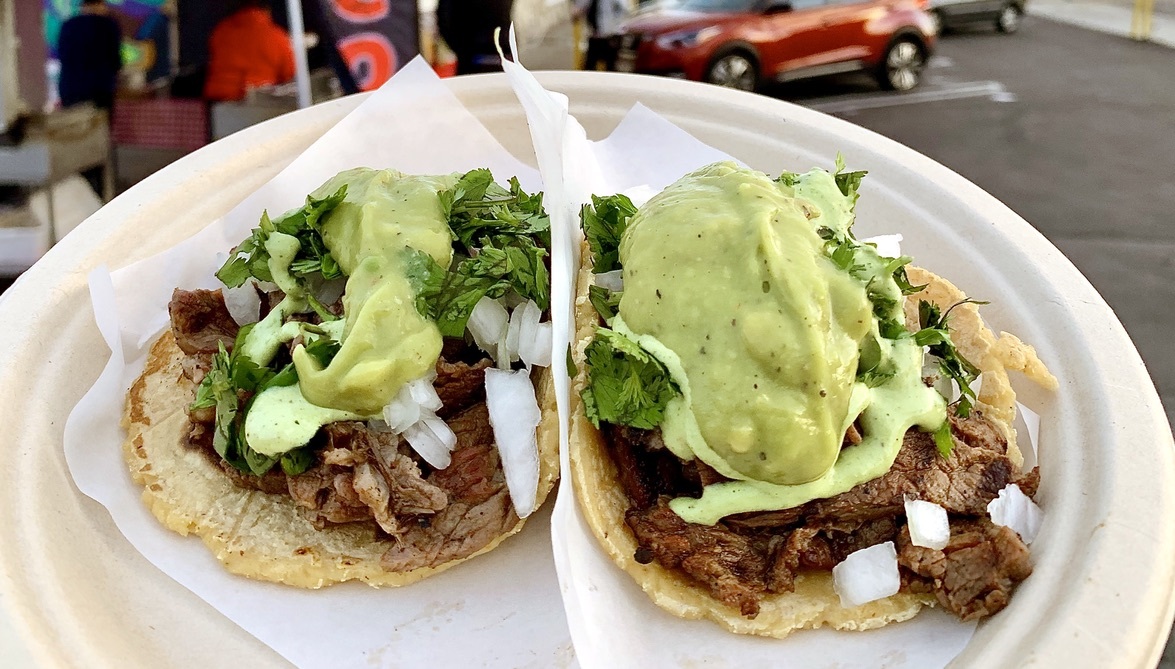[dropcap size=big]T[/dropcap]here is a popular phrase in Mexican American culture that sums up the looming meat shortage that is starting to make some taqueros panic: “A comer frijoles.”
The meat industry is in trouble . . . and so are the taqueros and taqueras in Los Angeles.
Just when taquerias were opening back up and had figured out meticulous safety procedures to keep businesses going, the coronavirus throws yet another obstacle in front of them. With major meat processing plants closing all over the country and the food supply distribution chains in disarray, chefs and taqueros are now putting in extra work and paying higher prices to find perhaps the most crucial elements of tacos: meat, tomatillos, and chiles that keep their businesses—and sazón—going.
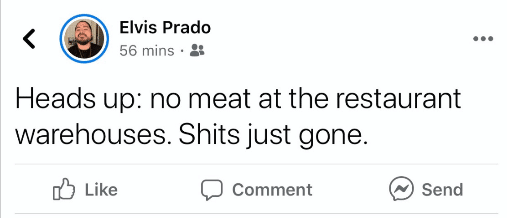
“Heads up: no meat at the restaurant warehouses. Shits just gone” writes owner and chef Elvis Prado of Bad Son Tacos on a recent Facebook post. Elvis had visited the Business Costco on Telegraph Road and Restaurant Depot, the largest restaurant supplier in the nation, “It was all empty,” he describes to L.A. Taco. They had some of the meats nobody really gets, “Like turkey and like three pieces of pork loin. I couldn’t get any pork for my carnitas.” He ended up going to a meat guy he knows in Montebello who already gave him an advanced warning that there wouldn’t be any meat next week.
That same day, Danny Rodriguez of Pablito’s Tacos, shared with L.A. Taco this video from his recent visit to the meat aisle at the same Restaurant Depot. He shows us an endless aisle filled on both sides with empty refrigerator shelves.
Rodriguez has resorted to buying from backup vendors and tells L.A. Taco that they had to pay six dollars a pound for the ranchera beef cut he uses for his asada tacos covered in his signature green creamy “crack” sauce and two bucks for pork butt. It usually goes for about a buck and a quarter. The meat comes from Mexico. “If costs keep rising, we will have no choice but to adjust prices,” explains Rodriguez of Pablito’s, “I’m also sure if I raise prices, sales will go down.”
“I might have to change the menu. Move to seafood or veggie tacos. In these times we gotta be creative, roll with the punches, and adapt.”
On the westside, Hugo Munoz of Brothers Cousins Tacos, is also having a similar problem. They, like other shops, just reopened after taking a couple weeks off. He tells L.A. Taco that they too have already been affected by the meat shortage. “We’re having trouble finding meat and had to pay seventy cents more per pound, and our sales are down about 50 percent from before.” He was also warned by his supplier that the prices will definitely continue to go up.
Jennifer Feltham of Sonoratown hasn’t felt the impact from the fledgling meat industry yet and ironically the higher demand for meat has allowed her to work on keeping the prices down from her “meat guy.” However, produce and other supplies have become difficult to find.
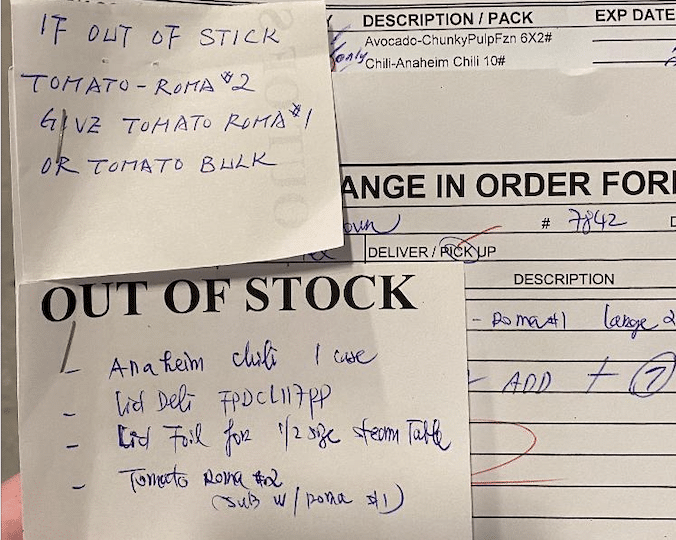
She shares an order she had prepared with her supplier; it had been returned and stapled with a small note labeled in big all capital letters, “OUT OF STOCK.” The ingredients were basic food staples: Roma tomatoes, Anaheim chiles, aluminum foil, and plastic lids for her refreshing coconut horchata. She also adds, “Limes were sold out today, Tomatillos shot up in price last week, prices are going haywire with little rhyme or reason.”
Sourcing ingredients is a new part-time job
On top of taking orders and running the taqueria, Feltham now also spends a lot of time tracking down ingredients. “Luckily we have an amazing team that is flexible and scrappy and willing to fight alongside me.”
Sonoratown has resorted to shopping at the local Superior supermarket and visiting the small produce vendors down the street at the Piñata district to secure the ingredients she needs. The group text messages she shared with L.A. Taco as they hunt around the city for items read like a Taqueria treasure hunt: “Serranos are $10 for 5lb and tomatillos are $36 for 38lbs. Radishes are sold out, but trimmed ones are $77 for a 25lb bag. Beans are $47 for 50 lbs” and so on.
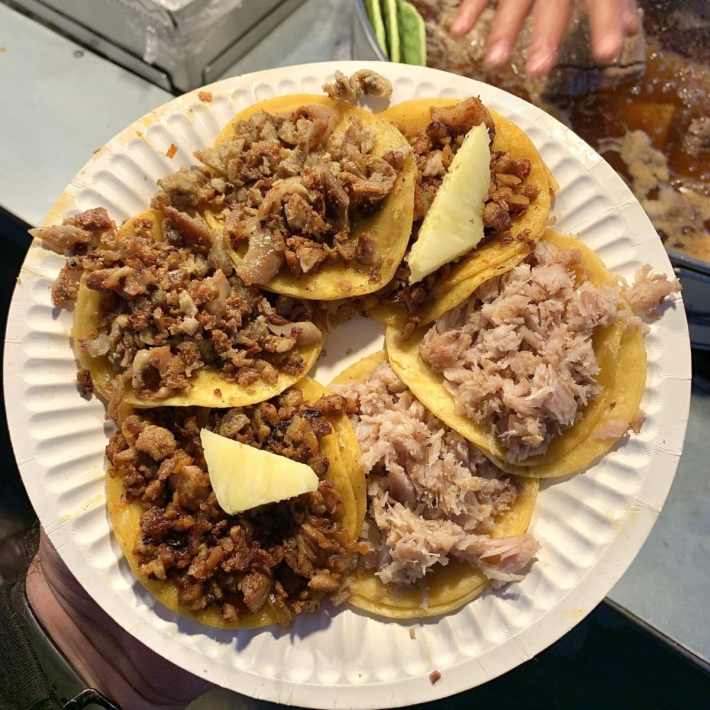
After seeing her friend Elvia Prado’s post, Feltham reached out to her meat supplier to ask how he was doing. She was assured by her supplier that he had been hustling and stockpiling for this in the last couple weeks, “We’re working double right now, trying to stay in the game,” he shares with her via text. Nonetheless, he echoes the same advanced warning from the other taquería’s meat purveyors. Although he has plenty right now, “It’s gonna get tight.”
With the food supply chain disrupted and price and availability fluctuating erratically, controlling costs and pricing is in itself another challenge that may just be too much to deal with at the moment. Jen, with her employees and business in mind, tells L.A. Taco, “It does affect our costs, but we’re just trying to keep moving forward. I don’t have time to think about profitability. I just need to keep things moving.”
A nation hoards food and slaughterhouses overwork sick employees
For the past couple of weeks, while national news organizations have been warning of a possible meat shortage due to thousands of their employees testing positive for coronavirus, experts tried to assure the country that there would be plenty of meat-based on the fact that there are over 2,700 slaughter plants around the country and production reached record highs in March. The USDA reported, “The March run-up in wholesale beef prices may be attributed, in part, to an increase in grocery store demand for beef, as consumers prepared to shelter in place due to COVID-19 and supply chains adjusted to stronger retail demand and weaker foodservice demand.”
During those panic buying weeks where grocery shoppers started hoarding food, slaughterhouses went to extreme measures to fulfill that demand without much regard for employee safety. According to Reuters, one lawsuit against Smithfield, a slaughterhouse in South Dakota that produces four to five percent of the nation’s pork, asserts that “rather than taking additional steps to protect workers at the Milan plant, the company actually sped up the processing lines and forced employees to work in cramped [shoulder to shoulder] conditions.” Two hundred employees at this plant have since been infected with the coronavirus.
What’s the current situation?
As of Tuesday morning, USA Today reported a total of 4,400 infected employees with 18 reported deaths across all meat processing plants. Last week on April 22nd, Bloomberg, via L.A. Times, quotes Dennis Smith, an account executive at Archer Financial Services, citing industry sources, that “Meat shortages will be occurring two weeks from now in the retail outlets,”
On Tuesday, only six days after that prediction, production was down 39 percent compared to the same day last year. Positive tests are still being reported in at least 80 plants in 26 states and there’s currently no timeline for the 30 or so meat processing plants currently closed to reopen.
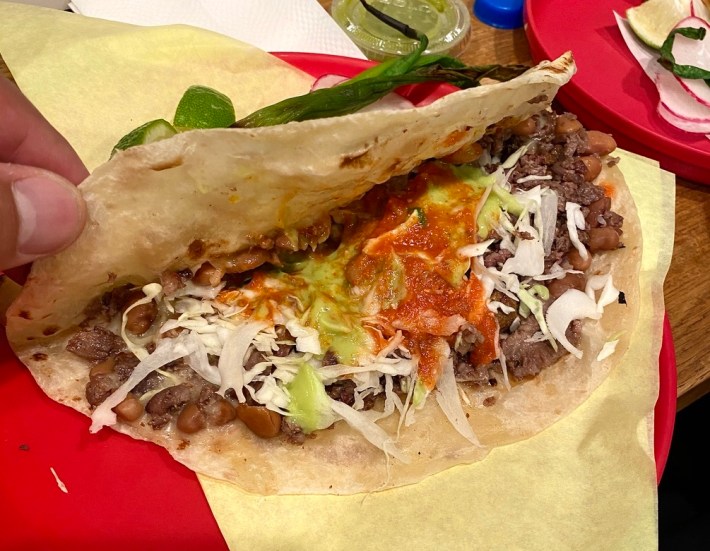
Not all meat processing plants are closed, but the ones that did close are the larger ones. There are still over 2,600 plants open and plenty of livestock, proving that this is not an issue of supply. It may just take time for the supply chains to adjust.
After Tyson Foods, who employs over 100,000 people, warned that the nation's food supply chain was breaking, Trump has decided to jump in and invoke the Defense Production Act on Tuesday night to classify meat plants as essential infrastructure that must remain open. Although Trump agreed to supply the meat packing industry with masks, he did so while showing little concern for the roughly 250,000 people the industry employs. The industry relies on hundreds of undocumented workers, the same type of workers he’s had a history of trying to chastise, even in the age of coronavirus.
His order essentially undercuts guidance the CDC issued Sunday, including keeping individual workspaces six feet apart and ensuring plant employees are not facing one another.
We may all have to go vegan for a while, and you know what, that’s not a bad thing either.
The only protections Trump is concerning himself with are not of the employees safety, but rather with the slaughterhouses' interests. Trump’s order grants the meat processors with immunity from any liability stemming from lawsuits by employees falling ill to the Coronavirus, a move whose legitimacy legal experts are already questioning.
Will this order be enough to safely open the factories again? There is a risk that if this is done recklessly, it could hurt the already fragile industry even more, but more importantly, it could result in more cases and more deaths.
What will happen while the meat runs out?
As Elvis Prado of Bad Son Tacos puts it, “I might have to change the menu. Move to seafood or veggie tacos. In these times we gotta be creative, roll with the punches, and adapt.” We may all have to go vegan for a while, and you know what, that’s not a bad thing either.
